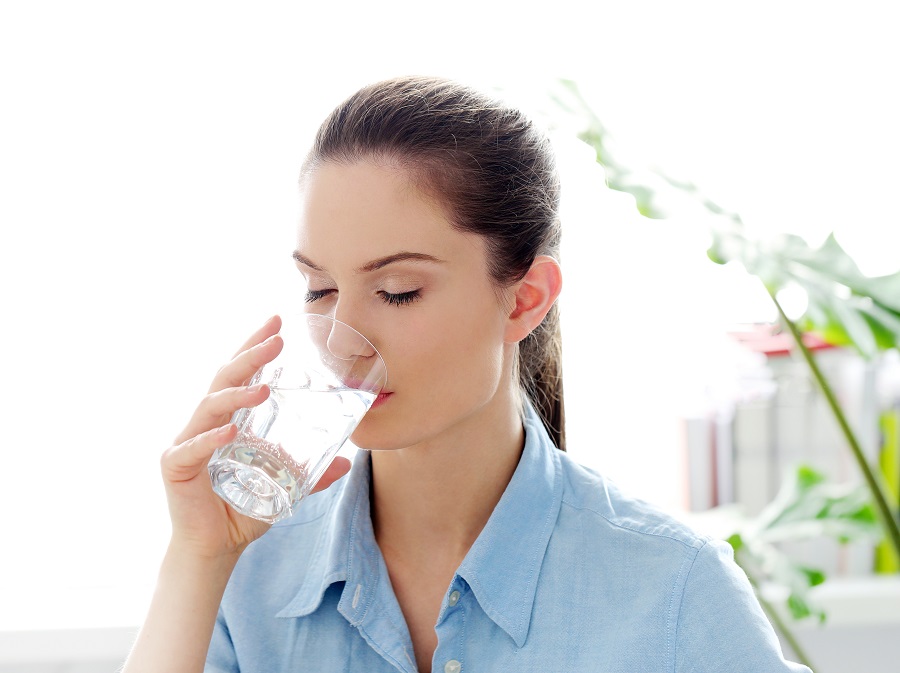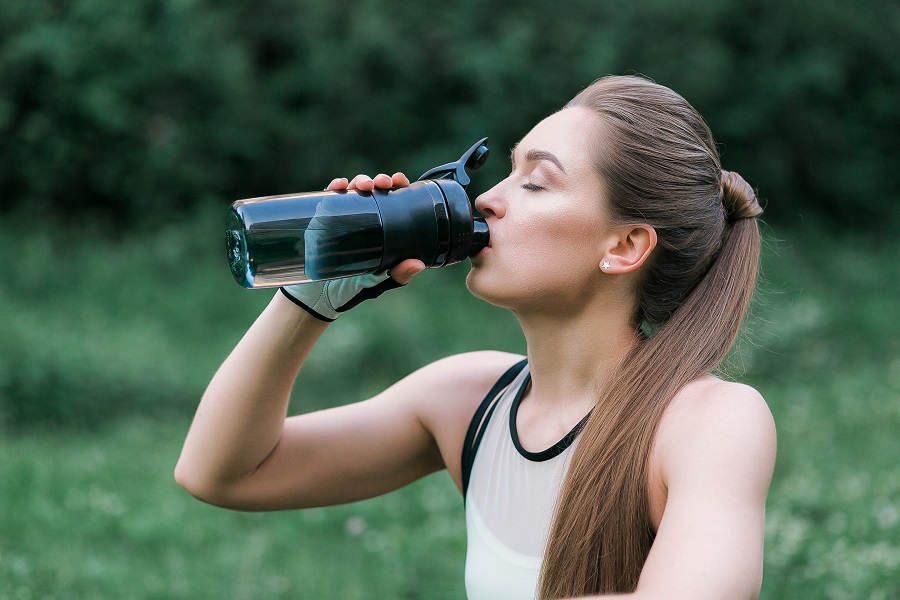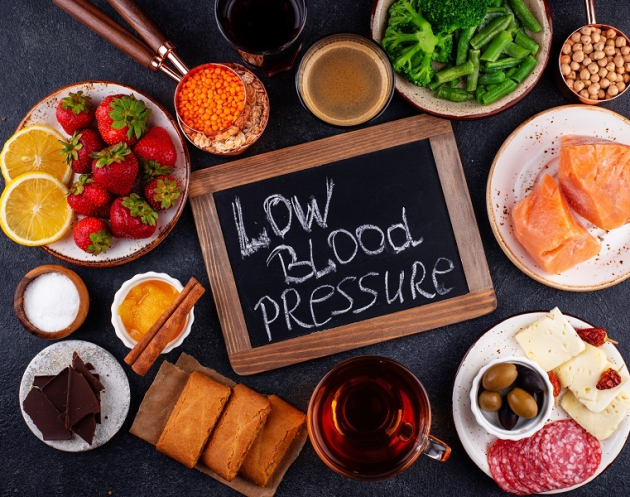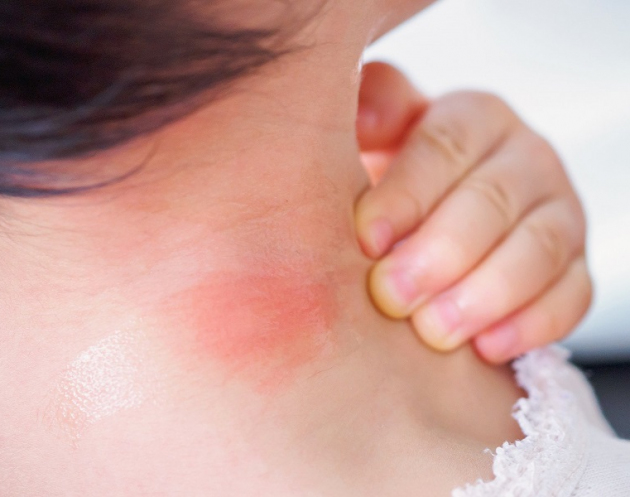When it comes to dehydration , it means that the human body has lost more fluids than it has taken in.
Our body is largely composed of water:
- 50% of body weight in the elderly,
- 60% in adults,
- 80% in children.
It is therefore important to always keep it well hydrated and to do this you must always replenish the fluids that the body loses during the day, through urine, sweat and breathing. Without the intake of fluids, the body undergoes complications of a life-threatening nature.
Dehydration: what it means
The word dehydration means the lack of water in the body. In fact, liquids are dispersed from the body during normal daily activities through sweating, urine and breathing and are replenished through food.
- In basal physiological conditions and at normal room temperature, the body’s fluid losses are less than 1 ml / min.
- When you accelerate physical activity or increase the external temperature you can get to lose with sweating up to 15-25 ml / min.
In these cases it therefore becomes necessary to take more water that can immediately fill the water loss.
Dehydration becomes important when fluid loss exceeds 5-6% of body weight .

Types of dehydration
There are various more or less dangerous stages of dehydration:
- hypertonic which is characterized by increased plasma sodium levels and hyper-osmolarity. This state of dehydration is due to excessive sweating
- isotonic which is usually caused by prolonged vomiting and diarrhea
- hypotonic is usually the consequence of the abuse of diuretics or rehydration with low sodium waters
The cause
The causes of dehydration can be different
- hyperprotein diet
- prolonged dysentery and vomiting
- excessive sweating
- diabetes mellitus and insipidus
- taking diuretics and laxatives
- excessive salt intake
and other causes such as
- burns
- polypnea
- bedsores
Dehydration: the first symptoms
The first symptom of dehydration is obviously thirst followed by less and less frequent urination, darker urine, dry mouth and tongue. Finally, motor and cognitive ability is also involved. In detail, let’s see what are the first signs of dehydration:
- thirst which, however, may sometimes not be present as in the case of dehydration of the elderly
- decreased diuresis and dark urine
- dryness of skin and lips
- increase in body temperature
- muscle cramps
- increased heart rate
- general weakness
- sunken eyeballs
- impairment of the sensory
- lack of tears in crying
- cold hands and feet

What to do in case of dehydration
If you feel the first symptoms of dehydration it is important to replenish the missing fluids immediately. First of all by drinking water.
- If, on the other hand, it is a pathology deriving from prolonged episodes of diarrhea or vomiting, immediately reintegrate with liquids with the addition of mineral salts . In the pharmacy there are several saline and mineral supplements.
- In severe cases, dehydration is treated in hospital with glucohydrosaline infusion for flecoclysis.
What are the risks of dehydration
Dehydration is a pathology which, if recognized immediately, recovers immediately, but which can become serious for life if underestimated or in some cases such as in cases of neonatal dehydration or in the elderly.
It becomes dangerous for several reasons, in particular because:
- a dehydrated body sweating no longer occurs and failure to sweat causes a considerable overheating of the body with negative repercussions on the hypothalamic thermoregulatory center
- in a dehydrated organism the blood volume is reduced and the blood circulates less well in the vessels: it follows that the heart becomes tired and a cardiovascular collapse can occur.
How to prevent dehydration
Certainly to reduce the risk of dehydration there are some simple rules to keep in mind:
- drink, not only based on the feeling of thirst that alerts us but drink water during the day because the body still needs it. In summer especially drink up to 2 liters per day.
- if you do intense physical activity, drink isotonic drinks
- eat a balanced diet rich in fruits and vegetables
- do not overdo it with sun exposure, especially in summer
- be cautious in spa or sauna practices
- reduce the use of alcohol, coffee and carbonated soft drinks
- dress appropriately without covering yourself excessively
Subjects at risk
Who are the most at risk of dehydration?
- children because their body is made up of 80% water and it must be replenished and because they often suffer from gastroenteritis which tends to cause a large loss of fluids
- the elderly because the stimulus of thirst diminishes with age and then there are other diseases that can increase the risk such as diabetes
- the sportsman because during physical activity he loses a lot of fluids through sweating
Dehydration and nutrition
To prevent dehydration, the best advice is to eat well. In particular, a diet rich in foods that naturally provide water is needed.
Foods are especially recommended:
- rich in water
- containing potassium and with a good sodium intake
- with vitamin C and B6
- poor in fructo-oligosaccharides
- low in carbohydrates – osmotic non-absorbable in the kidneys
- without caffeine and alcohol
What to eat
Food is essential in reducing the risk of low body hydration. Much of the foods we eat are made up of liquids.
It is recommended to take:
- from 50 to 300 grams of fruit and vegetables per day to ensure the supply of water and potassium. So yes to soups, cooked and raw vegetables, juices, centrifuged and smoothies, but also tea and herbal teas.
- milk and yogurt

What not to eat
To avoid the risk of dehydration, it is advisable not to consume excessively poorly hydrated foods such as
- aged cheeses
- cooked meats and fish
- sauces
- cured meats and sausages
- bread sticks and crackers
- jams and candied fruit
and avoid prolonged use of diuretic products and avoid consumption of products based on
- alcohol
- coffee
What to drink
The perfect drink to reduce the risk of dehydration must be:
- easily absorbed without causing gastrointestinal problems
- not too cold
- isotonic and not hyper-osmolar
- it must contain a minimum quantity of carbohydrates never higher than 10%.
In case of initial symptoms it is recommended to sip specially formulated drinks.
How to make a rehydrating drink
Ingrediants
- 1 liter of water
- 5 tablespoons of sugar
- 1 gr of salt
- 100 ml of freshly squeezed orange juice
Preparation : Mix the ingredients and serve cool but never too much below 5 degrees.

Dehydration of children
Dehydration in children is usually caused by
- vomiting and diarrhea with excessive fluid loss
- insufficient fluid intake
For children and especially infants, dehydration is life-threatening.
At the first symptoms of thirst, hypoactivity, dry lips and mouth and reduced urine, contact your doctor immediately.
Treatment for infant dehydration involves the oral or, in severe cases, vein (intravenous) administration of fluids and electrolytes.
Symptoms in newborns
Dehydrated babies need immediate medical attention. The first symptoms are:
- sinking of the soft spot at the top of the head
- sunken eyes
- lack of tears
- dry mouth
- little urine
- reduced activity and attention
Severe dehydration makes babies lethargic and sometimes a bluish discoloration of the skin – cyanosis – and increased breathing can develop. In severe cases, the child may have seizures or a coma. Attention to the first symptoms contact the pediatrician.
The doctor in front of the symptoms of childhood dehydration will have blood and urine tests performed to determine the levels of electrolytes present in the body, the degree of dehydration and the necessary amount of fluids to replenish.
How to cure
The disease is treated in children with the intake of liquids containing electrolytes, such as sodium and chloride: liquids are taken orally in small frequent sips, about every 10 minutes. In severe cases they are transferred to the hospital to receive intravenous fluids.
Dehydration in the elderly
The phenomenon of dehydration affects 20-30% of the elderly especially if other pathologies are present. The elderly are more prone to dehydration due to other physiological alterations related to aging.
For example seniors have:
- less thirst – especially in Alzheimer’s patients
- decreased kidney function
- the lack of voluntary control of urination
- hypertension and constipation
- intestinal disorders such as diarrhea and vomiting
The first symptoms in the elderly are:
- mouth, lips and tongue become dry
- sunken eyes
- dark urine
- fatigue and migraine
- rapid breathing and tachycardia
Elderly people with dehydration have a lack of attention and concentration and also develop more pressure sores.
Risks
Adequate hydration in the elderly is important for good kidney function. Insufficient hydration can also cause severe constipation.
The consequences of dehydration in the elderly depend on its severity but can lead to death. It is urgent to communicate the first signs of this pathology to the doctor and the patient must be rehydrated in the hospital by intravenous injection.




